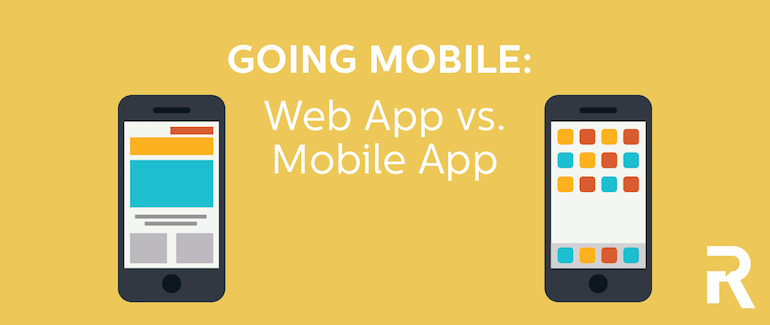
With a growing number of people using mobile devices to search for jobs online, companies are beginning to wonder how they can better connect with mobile job seekers. If you’re considering the best way to engage with candidates visiting from a mobile device, the question of whether you should create a mobile site or native app might be one you’re debating. While both can provide your prospective candidates with the information you’d like to share, they are two distinct vehicles for doing so.
At the most basic level, the difference between a mobile site and a native app is where it lives. A mobile site lives on the internet, so you access it from your mobile device’s web browser. A native app, however, lives on your mobile device once you download it from a managed marketplace like Apple’s App Store. You open the native app by selecting the app's icon on your homescreen.
Think about the difference between using your mobile internet browser to go to Facebook, versus clicking on the Facebook app icon to access the site. When you use your phone’s internet browser to access Facebook, you are visiting Facebook’s mobile site. When you download the Facebook app and click on it to access the website, you are utilizing Facebook’s native app.
In general, one option isn’t better than the other. Each app is created differently and functions in a unique way, so it really depends on your needs and available resources. But if your goal is to optimize your career site for your non-desktop visitors, a mobile responsive site is all you really need. Here are a few reasons why:
Compared to a native app, building a mobile site is much less expensive. When you create a mobile site, you only need to build one version to make it compatible for all mobile devices. But when you build a native app, you need to create multiple versions of the same app in order to make it available on all devices (e.g. Apple devices and Android devices). Not surprisingly, creating a mobile-responsive site is much more affordable than creating multiple apps. And unfortunately, when system updates and new screen sizes or resolutions become available, each version of the native app requires updates. As a result, maintaining and updating a native app costs more than it does for mobile sites.
Overall, building a mobile site is easier than building a native app. This is mainly because mobile sites require less resources than native apps, and most of them are easy to acquire or outsource. Also, when building a native app, the app store must test and approve the app before offering it to mobile users. In other words, your native app may not even make it to the market! This approval process can also delay your launch date considerably, especially if your app isn’t approved the first time (which is very likely to happen).
As we mentioned earlier, one of the biggest differences between the two apps is where the app lives. This difference determines how mobile users access your career site, so think about what’s best for your audience. Realistically speaking, mobile job seekers are unlikely to download a native app solely to access your career site and view your jobs. So if your end goal is to get more mobile candidates to your jobs, building a mobile career site makes more sense. The immediacy of mobile career sites allow mobile job seekers to access your employment information and jobs without downloading an app.
The web pages within a mobile career site can be displayed in search results and job listings, allowing mobile job seekers to easily discover your mobile site during their job search. But when it comes to native apps, mobile job seekers won’t discover it unless they see an advertisement for it or visit the app store. And with Google Search being one of the most popular smartphone apps—according to Nielsen—mobile job seekers are more likely to use their mobile internet browser than they are to visit the app store.
If your company wants to connect with more mobile candidates, building a mobile career site is probably your best option. Compared to a native app, a mobile career site is more practical for your business and more convenient for your mobile candidates. And really, what more could you ask for?
If you need help making your career site mobile-friendly, read The 4 Step Process for Mobile Recruiting (Free White Paper) or contact us.